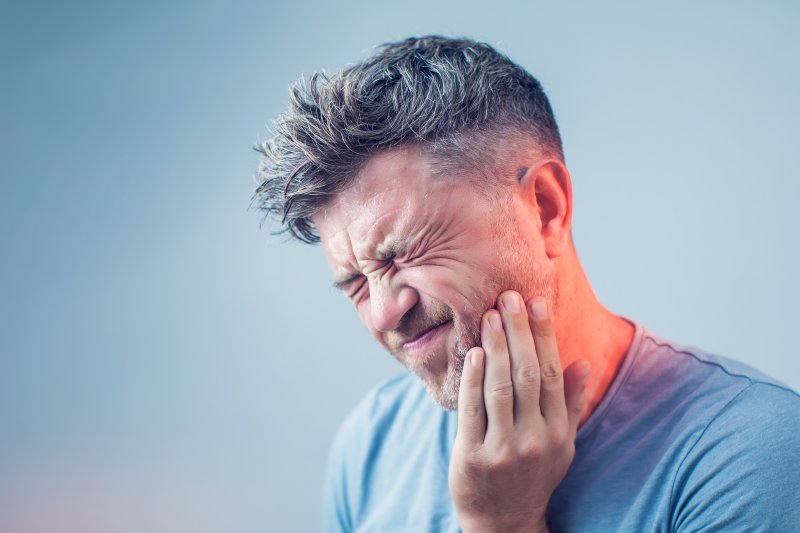
While denture sores should be a rare occurrence, they can happen in some cases. While they’re most likely to develop during the first several weeks of wearing a new set of dentures, they can also mean that the dentures need to be relined due to the jaw changing shape. If your denture sores are big and painful, if you think they might be infected, or if they haven’t gone away after two weeks, they can be a reason to be concerned. Here’s a quick overview of denture sores and how they can be treated.
What Causes Denture Sores?
If your dentures don’t fit properly or if you aren’t used to wearing them, they can irritate the gum tissue and cause sores to form. While it’s completely normal to have some irritation when getting used to a new set of dentures, a poorly fitting set can abrase or cut into the gums as they slide around. Denture sores can also be caused by food particles getting stuck between the appliance and the gum tissue or poor denture hygiene.
How Can I Treat Denture Sores at Home?
If you’re looking for a home remedy for denture sores, over-the-counter pain relievers or numbing gels are a good place to start. You can also try combining two ounces of warm water with a quarter teaspoon of salt and rinsing with the resulting solution for thirty seconds before spitting. You can do this a few times a day to clean bacteria and food debris from your sores so they can heal more easily.
Denture sores can also be treated or prevented with proper oral hygiene practices. It’s best to precisely follow your dentist’s instructions for brushing and cleaning your dentures. It’s also important to remove and soak your dentures for at least eight hours every day so your mouth has time to rest, clean itself, and heal. Most patients do this before going to bed.
When Should I See My Dentist?
If your denture sores aren’t going away on their own after two weeks, call your dentist’s office. There, you may receive a denture reline to adjust the way it fits or another treatment to treat your sores directly. If your sores are infected, you may be prescribed antibiotics. Your dentist will probably also instruct you on better denture care to prevent the issue from occurring again.
When they fit correctly, dentures should be so comfortable that you don’t notice that they are there. If denture sores are becoming a persistent problem, getting the care you need can help you enjoy your restored smile properly.
About the Author
Dr. Durga Buchupally earned her dental degree at the University of Oklahoma College of Dentistry and continues to develop her skillset with continuing education courses. She is also a proud member of the American Dental Association and the Texas Dental Association. Her office in Bedford, TX offers general, restorative, cosmetic, and emergency dentistry as well as denture services. If you are concerned about persistent denture sores, contact her office online or dial (817) 464-8655.
